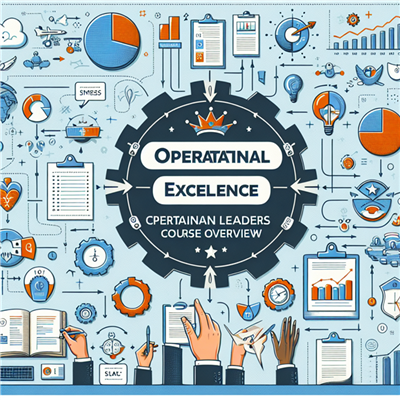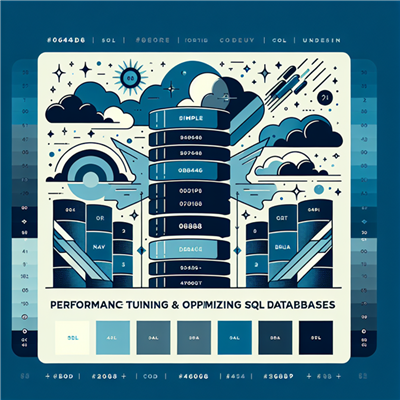
The advent of the digital age has brought along significant changes in the IT sector. One of the most sought-after positions in the field is that of a Cloud Engineer. The responsibilities of a cloud engineer encompass planning, designing, and managing cloud systems. As such, enrolling in a cloud engineer course is an essential step towards mastering the skills needed in this profession.
In today’s digital era, businesses are increasingly migrating their operations to the cloud. This trend has led to a surge in demand for cloud engineers—professionals who design, implement, and manage cloud-based systems. A cloud engineer course can provide the essential skills needed to excel in this rapidly evolving field. This blog will delve into the critical competencies you will acquire through cloud engineer training, including cloud architecture, networking, security, and more.
Understanding Cloud Engineering
Before we explore the essential skills, it’s crucial to understand what cloud engineering entails. Cloud engineering focuses on the design and management of cloud infrastructure and services. This includes deploying applications in the cloud, optimizing performance, ensuring security, and managing costs. As organizations increasingly rely on cloud solutions, cloud engineers play a vital role in ensuring that these systems function efficiently and securely.
1. Cloud Architecture
One of the most foundational skills you will learn in a cloud engineer course is cloud architecture. This involves designing scalable and reliable cloud systems that meet the specific needs of an organization. Key components include:
- Understanding Cloud Models: Familiarizing yourself with different cloud service models—Infrastructure as a Service (IaaS), Platform as a Service (PaaS), and Software as a Service (SaaS)—is essential. Each model serves different business needs and requires different architectural considerations.
- Service Design: You will learn how to design cloud services that optimize performance, scalability, and resilience. This includes understanding how to leverage load balancing, auto-scaling, and resource allocation.
- Deployment Strategies: Knowledge of various deployment strategies, such as multi-cloud and hybrid cloud architectures, is critical. You’ll learn how to integrate on-premises resources with cloud services, ensuring a seamless user experience.
2. Networking Skills
Networking is another fundamental aspect of cloud engineering. A cloud engineer must understand how cloud services interact with each other and with on-premises infrastructure. Key networking skills include:
- Virtual Networks: Understanding how to create and manage virtual networks within cloud environments is vital. This includes setting up Virtual Private Clouds (VPCs) and configuring subnets, gateways, and route tables.
- DNS and Load Balancing: Knowledge of Domain Name System (DNS) configuration and load balancing techniques ensures that applications are accessible and perform optimally.
- Network Security: Familiarity with firewalls, security groups, and network access control lists (ACLs) is essential for protecting cloud resources and data.
3. Cloud Security
With the increasing reliance on cloud services, security has become a top priority. A cloud engineer course will equip you with the skills necessary to secure cloud environments, including:
- Identity and Access Management (IAM): Understanding how to manage user identities and permissions is crucial for safeguarding cloud resources. You will learn about IAM roles, policies, and best practices for securing user access.
- Data Encryption: Knowledge of data encryption techniques—both at rest and in transit—is essential for protecting sensitive information. You’ll explore various encryption methods and how to implement them within cloud services.
- Compliance and Governance: Familiarity with regulatory requirements (e.g., GDPR, HIPAA) is vital for ensuring compliance in cloud environments. You’ll learn about best practices for data governance and risk management.
4. DevOps Practices
Cloud engineers often work in tandem with development teams, making familiarity with DevOps practices essential. You will learn about:
- Continuous Integration and Continuous Deployment (CI/CD): Understanding CI/CD pipelines helps automate the software development lifecycle. You’ll learn how to integrate testing, building, and deployment processes into cloud environments.
- Infrastructure as Code (IaC): This concept allows engineers to manage cloud infrastructure through code. You will gain proficiency in tools like Terraform, AWS CloudFormation, or Azure Resource Manager, enabling you to provision and manage resources programmatically.
- Monitoring and Logging: You’ll learn how to implement monitoring and logging solutions to track application performance and identify potential issues. Tools like Amazon CloudWatch or Azure Monitor will be covered in depth.
5. Database Management
Many applications rely on databases for data storage and retrieval. As a cloud engineer, you will need to understand:
- Database Types: Knowledge of different database types—relational (SQL) and non-relational (NoSQL)—is essential for selecting the right database for your applications.
- Cloud Database Services: Familiarity with cloud-based database services (e.g., Amazon RDS, Google Cloud Spanner, Azure SQL Database) will enable you to effectively manage and optimize database performance in the cloud.
- Backup and Recovery: Understanding backup strategies and disaster recovery solutions is crucial for maintaining data integrity and availability.
6. Cost Management
Cloud cost management is an often-overlooked aspect of cloud engineering. You will learn how to:
- Budgeting and Cost Estimation: Familiarizing yourself with cloud pricing models helps you estimate costs and manage budgets effectively.
- Resource Optimization: Understanding how to optimize resource usage can significantly reduce costs. You will learn techniques for scaling resources up and down based on demand and implementing cost-saving strategies.
- Monitoring and Reporting: Familiarity with cloud cost monitoring tools will help you track spending and identify areas for cost reduction.
7. Soft Skills and Collaboration
While technical skills are essential, soft skills play a critical role in a cloud engineer’s success. Key soft skills include:
- Communication: Effective communication is vital when collaborating with cross-functional teams, including developers, operations staff, and management. You will learn how to convey technical concepts clearly to non-technical stakeholders.
- Problem-Solving: The ability to troubleshoot issues and devise solutions quickly is crucial in cloud engineering. Courses often emphasize real-world scenarios that enhance your problem-solving skills.
- Teamwork: Cloud engineering often involves working in teams. You will learn how to collaborate effectively, share knowledge, and contribute to team projects.
8. Certifications and Continuous Learning
As cloud technology continues to evolve, continuous learning is essential. Many cloud engineer courses prepare you for industry-recognized certifications, such as:
- AWS Certified Solutions Architect
- Microsoft Certified: Azure Solutions Architect Expert
- Google Cloud Professional Cloud Architect
These certifications not only validate your skills but also enhance your employability in a competitive job market.
Conclusion
A cloud engineer course offers a comprehensive foundation in the essential skills required to thrive in this dynamic field. From mastering cloud architecture and networking to understanding security best practices and DevOps methodologies, the competencies gained through such training will prepare you for a successful career in cloud engineering.
As organizations increasingly rely on cloud solutions, the demand for skilled cloud engineers will continue to grow. By investing in your education and acquiring these essential skills, you position yourself for a rewarding career in one of the most sought-after fields in technology today. Whether you're just starting your journey or looking to enhance your existing skills, a cloud engineer course can provide the knowledge and experience needed to excel in this exciting domain.
In today's data-driven world, the role of a cloud engineer is ever-growing. By enrolling in a cloud engineer online course, you can stay ahead of the curve, and equip yourself with the skills needed to thrive in this field.
Koenig Solutions is your partner in this journey, providing the necessary training and certifications to excel in top technology courses.







COMMENT